Power Battery

How long does a typical power battery last in an electric vehicle ?
Electric vehicles (EVs) have become increasingly popular due to their environmental benefits and lower operating costs. One of the most common concerns for potential EV owners is the lifespan of the vehicle's power battery. In this article, we will explore the typical lifespan of a power battery in an electric vehicle and factors that can affect it. The lifespan of a power battery in an electric vehicle depends on several factors, including the type of battery, driving habits, and maintenance practices. However, a general rule of thumb is that a typical power battery lasts between 8-15 years or 100,000-200,000 miles. Several factors can impact the lifespan of a power battery in an electric vehicle. These include: - Type of Battery: The two most common types of batteries used in EVs are lithium-ion and nickel-metal hydride. Lithium-ion batteries generally have a longer lifespan than nickel-metal hydride batteries. - Driving Habits: Frequent rapid acceleration and braking can shorten the lifespan of a power battery. Additionally, driving at high speeds and in hot temperatures can also negatively impact battery life. - Maintenance Practices: Proper maintenance practices, such as regularly checking and maintaining the cooling system, can help extend the lifespan of a power battery. Neglecting maintenance can lead to premature battery failure. - Charging Habits: Charging the battery to 100% every time can shorten its lifespan. It is recommended to charge the battery to around 80% to prolong its lifespan. As a power battery ages, it may start showing signs of failure. Some common signs include: - Reduced Range: If you notice a significant decrease in the distance your EV can travel on a single charge, it could be a sign that your power battery is failing. - Slow Charging: If your EV takes longer to charge than usual, it could be a sign that your power battery is losing capacity. - Decreased Performance: If you notice a decline in your EV's overall performance, such as slower acceleration or reduced top speed, it could be due to a failing power battery. - Bulging or Swelling: If you notice any physical changes to your power battery, such as bulging or swelling, it is a clear sign that it needs to be replaced. In conclusion, the typical lifespan of a power battery in an electric vehicle is between 8-15 years or 100,000-200,000 miles. However, several factors can impact the lifespan of a power battery, including the type of battery, driving habits, maintenance practices, and charging habits. By being mindful of these factors and properly maintaining your EV's power battery, you can help extend its lifespan and enjoy many years of reliable performance.

How can I maximize the lifespan of my electric vehicle's power battery ?
Maximizing the Lifespan of Your Electric Vehicle's Power Battery: Electric vehicles (EVs) are becoming increasingly popular due to their eco-friendliness and cost-effectiveness in the long run. However, one of the most crucial components of an EV is its power battery, which requires proper maintenance to ensure a longer lifespan. Here are some tips on how you can maximize the lifespan of your electric vehicle's power battery: 1. Avoid extreme temperatures: The performance and lifespan of your EV's power battery can be significantly affected by extreme temperatures. Both high and low temperatures can cause damage to the battery cells, leading to reduced capacity and shorter lifespan. Therefore, it is essential to store and operate your EV within moderate temperature ranges whenever possible. 2. Maintain proper charging habits: Proper charging habits play a crucial role in maximizing the lifespan of your EV's power battery. It is recommended to maintain a moderate state of charge (SOC) and avoid frequent deep discharges and full charges. 3. Regular maintenance: Regular maintenance is essential for ensuring the longevity of your EV's power battery. This includes monitoring the battery's health, checking for any signs of damage or leakage, and addressing issues promptly. 4. Drive efficiently: Driving efficiently can also help maximize the lifespan of your EV's power battery by reducing strain on the battery and improving overall energy efficiency.

Is there a way to check which apps are using the most battery power on my iPhone ?
The text provides a step-by-step guide on how to check battery usage on an iPhone, identify high battery-consuming apps, and take action to save battery life. It includes accessing the battery usage information in the Settings app, identifying apps that consume more power, and taking measures such as closing unused apps, turning off background app refresh, reducing screen brightness, and using Low Power Mode to conserve battery.
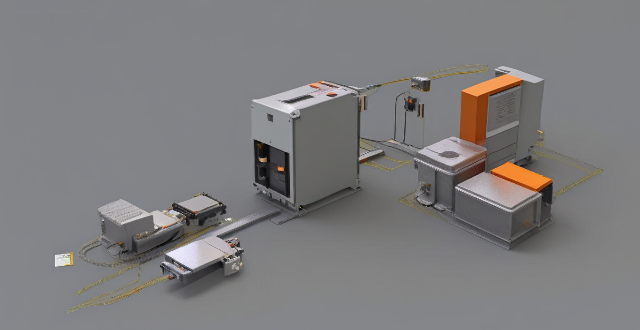
How does a lithium-ion power battery work ?
Lithium-ion power batteries work through the movement of lithium ions between the anode and cathode during charging and discharging, generating an electrical current to power devices. The process involves intercalation and deintercalation of ions in the electrodes, facilitated by an electrolyte and separator. Safety mechanisms and lifespan are key considerations for these widely used batteries.

What factors affect the performance and lifespan of a power battery ?
The performance and lifespan of a power battery are influenced by various factors, including charging habits, discharge rates, temperature conditions, mechanical stress, age, quality of the Battery Management System (BMS), and chemical composition. Overcharging or undercharging can lead to reduced lifespan due to heat buildup or memory effect, respectively. High discharge rates and deep depths of discharge can stress the battery and shorten its longevity. Temperature extremes and fluctuations affect efficiency and stability, while mechanical impacts and vibrations can cause physical damage. Aging is an inevitable factor, but a well-designed BMS can mitigate many issues related to charge and temperature control. Different chemical compositions also play a role in stability and lifespan characteristics. Proper care and management are essential for optimizing battery performance and extending its lifespan.

How does 5G affect battery life in smartphones ?
With the advent of 5G technology, concerns have arisen about its impact on smartphone battery life. In this article, we explore how 5G affects battery life and provide strategies for conserving battery while still enjoying the benefits of 5G speeds. First, we define 5G as the fifth-generation wireless technology that promises faster data transfer speeds, lower latency, and greater connectivity than its predecessor, 4G LTE. However, the higher frequency bands used by 5G require more energy to transmit and receive signals compared to 4G. Additionally, the increased number of small cell sites needed for 5G coverage also requires more power to operate. Second, we discuss how 5G can affect battery life through increased data consumption and higher power consumption. With faster speeds and improved connectivity, users are likely to use their devices more frequently and for longer periods of time, leading to a drain on the battery. Furthermore, network management issues may cause unnecessary strain on the battery. Third, we provide strategies for conserving battery life when using a 5G network. These include turning off unnecessary features, using low power mode, optimizing screen settings, and updating your device regularly. By implementing these strategies, you can help extend your device's battery life while still being able to take advantage of 5G speeds.

What is the current state of research and development in power battery technology ?
The current state of research and development in power battery technology is focused on several key areas including energy density, safety, charging time, cost reduction, lifespan and recycling, and environmental impact. Efforts are being made to increase the amount of energy that can be stored per unit weight or volume through material innovations such as solid-state electrolytes and high-capacity electrode materials. Safety measures are being improved with advanced monitoring systems and protective mechanisms to prevent thermal runaway and other hazards. Faster charging capabilities are being developed through new charging methods and protocols, along with advancements in charging infrastructure. Cost reduction is being achieved through economies of scale and alternative materials. Lifespan is being extended through techniques like active cooling and optimized charging algorithms, while recycling efforts are focused on designing batteries that can be easily disassembled and whose components can be recovered and reused. Sustainable materials are being investigated to minimize the environmental footprint of power battery production, and efforts are being made to reduce the toxicity of battery components.

What happens if my home security system fails during a power outage ?
### What happens if my home security system fails during a power outage? **Scenario Overview:** During a power outage, the functionality of your home security system depends on its type and configuration. Here's what typically happens: #### Battery Backup Systems - **Immediate Shift to Battery Power:** Modern systems switch automatically to battery backup during outages. - **Notification to Homeowner:** Some systems alert homeowners when they switch to battery power. - **Reduced Functionality:** To conserve battery life, certain features like live video streaming might be reduced or turned off. #### Non-Battery Backup Systems - **Loss of Power Means Loss of Function:** Without a backup, the system stops working, leaving your home unmonitored. - **Potential for False Alarms:** Sudden power loss can sometimes trigger false alarms as systems shut down. - **Risk of Unauthorized Access:** With no active security, your home could be vulnerable to break-ins. #### Cellular-Based Systems - **Continued Operation:** Systems that use cellular signals for communication often keep working since they don’t rely on home electricity. - **Possible Data Usage Increase:** More frequent status updates or reconnection attempts could increase data usage. #### Smart Home Integrations - **Dependent on Hub Power Source:** Devices integrated with your security system may rely on the hub’s power source. If the hub has a battery backup, it continues to function; otherwise, it's affected by the outage. - **Possibility of Remote Access:** You might still monitor and manage your system remotely through a smartphone or other device. #### Mitigation Strategies To ensure your home remains secure during a power outage: - **Install a Battery Backup:** This keeps your system functional during short outages if it doesn’t have one already. - **Regularly Test Your System:** Include responses to power failures in your tests to ensure expected functionality. - **Invest in a Uninterruptible Power Supply (UPS):** A UPS provides temporary power, extending operation beyond just battery backup. - **Stay Informed About Power Outages:** Being aware of potential outages helps you prepare, such as charging backup batteries beforehand.

Are there any safety concerns associated with power batteries in electric vehicles ?
Electric vehicles (EVs) are becoming increasingly popular as an alternative to traditional gasoline-powered cars. One of the main components of an EV is its power battery, which stores energy and provides it to the electric motor. While power batteries have many benefits, there are also some safety concerns associated with them. In this article, we will discuss these concerns and how they can be addressed. The most significant safety concern associated with power batteries is thermal runaway. This occurs when a battery cell overheats and causes a chain reaction that can lead to fire or explosion. Thermal runaway can be caused by various factors, including manufacturing defects, physical damage, or improper charging. Another safety concern associated with power batteries is chemical leaks. Lithium-ion batteries, which are commonly used in EVs, contain chemicals that can be harmful if they leak out of the battery pack. Finally, there is a risk of fire associated with power batteries in EVs. While fires are rare, they can occur due to thermal runaway or other factors, such as physical damage to the battery pack.

How can I ensure I have enough power for all my devices while on the road ?
When traveling, it's crucial to ensure your devices are adequately powered. Here's how: 1. **Plan Ahead**: Make a list of devices, check their battery life, and pack extra chargers and cords. 2. **Use Portable Power Banks**: Choose high-capacity, portable power banks and ensure they're fully charged before departure. 3. **Utilize Vehicle Charging Options**: Invest in multi-USB car chargers and consider portable car battery jump starters with USB ports. 4. **Stay Connected to Power Sources**: Take advantage of hotel room outlets, public charging stations, and ask locals or staff for charging options. 5. **Conserve Battery Life**: Turn off unnecessary features, lower screen brightness, close unused apps, and use battery-saving modes.

Is it necessary to turn off my Wi-Fi when not in use to save battery life ?
Turning off Wi-Fi when not in use can save battery life. It reduces power consumption, minimizes background app activity, and decreases heat generation. Managing Wi-Fi usage by turning it off, using airplane mode, connecting to power-efficient networks, and limiting background data can help extend device battery life.
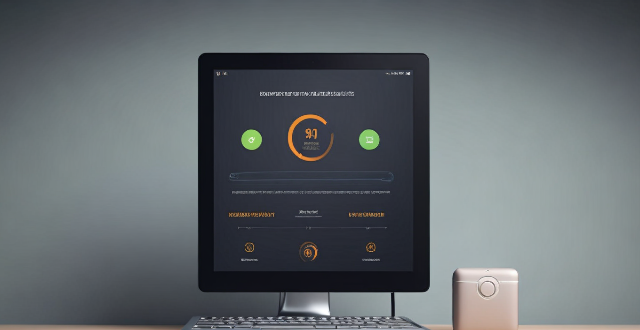
Will a screen protector affect my iPhone's battery life ?
A screen protector does not directly affect an iPhone's battery life, but certain types may have indirect effects. To optimize battery life, users should adjust screen brightness, turn off unnecessary features, use power-saving modes, regularly update software, monitor app usage, maintain proper storage space, replace old batteries, and seek professional help when needed.

How does a lead-acid battery work ?
Lead-acid batteries work on the principle of converting chemical energy into electrical energy and vice versa. They consist of an electrolyte, plates, and separators. During charging, an external power source applies a voltage higher than the open-circuit voltage of the battery, causing lead sulfate on the positive plate to be converted back into lead dioxide and on the negative plate into metallic lead. During discharging, when a load is connected to the battery, lead dioxide on the positive plate is reduced to lead sulfate, and metallic lead on the negative plate is oxidized to lead sulfate. The electrons flow from the negative terminal of the battery to the load during discharging and from the positive terminal of the external power source to the positive plate of the battery during charging.

Can turning off certain features help save battery life on an iPhone ?
Turning off certain features can help save battery life on an iPhone. Adjusting settings like location services, background app refresh, screen brightness, automatic downloads, notifications, low power mode, iCloud sync, and data usage can extend the device's battery life. By following these tips, users can ensure their iPhone lasts longer between charges.

What is the battery life of the new iPhone model ?
The battery life of the new iPhone model varies depending on usage, but Apple claims up to 17 hours of talk time and 10 hours of internet use. Factors affecting battery life include screen brightness, background app refresh, and Wi-Fi vs cellular data. Tips for maximizing battery life include lowering screen brightness, turning off unnecessary features, using low power mode, closing unused apps, and updating the iPhone with the latest software updates.

How can I improve the battery life of my iPhone ?
Improving the battery life of your iPhone is essential for ensuring that you can use your device throughout the day without worrying about running out of power. Here are some tips on how to extend the battery life of your iPhone: ## 1. Adjust Screen Brightness - **Lower the screen brightness**: Reducing the screen brightness can significantly improve battery life as the display is one of the biggest drains on your phone's battery. - **Use Auto-Brightness**: Enabling auto-brightness allows your iPhone to adjust the screen brightness based on ambient lighting conditions, which can help save battery. ## 2. Turn Off Unnecessary Features - **Disable Location Services**: Turn off location services for apps that don't need it or only allow them to access your location while using the app. - **Turn Off Background App Refresh**: Disabling background app refresh prevents apps from updating in the background, saving battery life. - **Disable Automatic Downloads**: Turn off automatic downloads for apps, music, and other content to avoid unnecessary updates and downloads. ## 3. Optimize Network Settings - **Use Wi-Fi Instead of Cellular Data**: Connect to Wi-Fi networks whenever possible as they consume less power than cellular data connections. - **Enable Low Power Mode**: When enabled, Low Power Mode reduces background activity and visual effects to conserve battery life. - **Turn Off Wi-Fi and Bluetooth When Not in Use**: If you're not using Wi-Fi or Bluetooth, turn them off to save battery life. ## 4. Manage App Usage - **Close Unused Apps**: Double-press the Home button (or swipe up from the bottom of the screen on newer models) to view recently used apps and close any that you're not currently using. - **Uninstall Unused Apps**: Remove any apps that you no longer use to free up storage space and reduce background activity. - **Limit Push Notifications**: Only allow push notifications for essential apps to minimize distractions and save battery life. ## 5. Update Software and Apps - **Keep iOS Up-to-Date**: Install the latest version of iOS as soon as it becomes available, as updates often include optimizations that can improve battery life. - **Update Apps Regularly**: Keep your apps updated with the latest versions, as developers often release updates that fix bugs and improve performance.

What factors affect the performance of a lithium battery ?
The performance of a lithium battery can be affected by temperature, charging rate, discharging rate, depth of discharge, age, and manufacturing quality. High temperatures and fast charging can damage the battery and reduce its lifespan, while low temperatures and slow charging can prolong the battery's lifespan but may not provide enough power for high-demand devices. High discharging rates can cause the battery to heat up and decrease in performance, while low discharging rates can prolong the battery's lifespan but may not provide enough power for high-demand devices. High DoD can lead to increased stress on the battery and a shorter lifespan, while low DoD can help prolong the battery's lifespan but may not be practical for devices that require a lot of power. Older batteries will have decreased capacity and performance, while newer batteries will have better performance and capacity. High-quality manufacturing processes can result in better performing batteries with longer lifespans, while low-quality manufacturing processes can result in poor performing batteries with shorter lifespans.

How often should I charge my iPhone to maintain optimal battery health ?
Maintaining optimal battery health for your iPhone involves avoiding full discharges, charging regularly, using official Apple accessories, and not worrying about overnight charging. By following these tips, you can help prolong the lifespan of your iPhone's battery and ensure that it performs at its best for as long as possible.

How can I maximize the lifespan of my lithium battery ?
Lithium batteries are widely used in various devices, from smartphones and laptops to electric vehicles. To ensure that your lithium battery lasts as long as possible, it's essential to follow some best practices for charging, storing, and using the battery. Here are some tips to help you maximize the lifespan of your lithium battery: 1. Avoid Overcharging 2. Maintain Proper Charging Levels 3. Store at Optimal Temperatures 4. Manage Battery Use 5. Software Updates 6. Physical Care

How much power can a hub motor generate ?
Hub motors are electric motors built into the wheel's hub and are commonly found in electric vehicles, wheelchairs, and other space-limited applications. The power generation of a hub motor is influenced by its design, size, and the type of battery it uses. Larger motors generally produce more power but require more energy to operate. The control system managing the motor's power output can also affect performance. Examples of hub motor power generation include small electric bikes (250-500 watts), medium electric bikes (500-1000 watts), large electric bikes (over 1000 watts), electric wheelchairs (250-1000 watts), and other applications like golf carts and electric cars with varying power ratings.

Can you explain how battery technology works in electric cars ?
Battery technology is a crucial component of electric cars, determining their range, performance, and efficiency. The basic components of a battery pack include the anode, cathode, electrolyte, and separator. During charging, lithium ions move from the cathode to the anode via the electrolyte, while discharging involves the movement of lithium ions in the opposite direction. Key factors affecting battery performance include capacity, energy density, power density, cycle life, and temperature management. By optimizing these aspects, manufacturers aim to improve the overall capabilities of electric vehicles.

Will the latest iOS update improve battery life on my iPhone ?
The latest iOS update may improve battery life on iPhones due to optimizations, bug fixes, and reductions in background activities. However, hardware limitations and new feature requirements can negatively affect battery performance. User feedback, testing, and monitoring are essential for assessing the impact of updates. If a decrease in battery life is observed, waiting, resetting settings, or contacting Apple support are recommended actions. The outcome depends on device age, update specifics, and usage patterns.

How does updating to the latest iOS version affect battery life on an iPhone ?
Updating to the latest iOS version can impact iPhone battery life positively by improving efficiency, fixing bugs, and adding battery-saving features. However, it might also negatively affect battery life by increasing demands, introducing background processes, resetting optimizations, causing compatibility issues, and requiring indexing and optimization post-update. To maintain good battery health after updates, users should monitor usage, disable unnecessary features, update apps, manage background refreshes, reduce screen brightness, use Low Power Mode, and check for further updates.

What is the lifespan of a lithium battery ?
The lifespan of a lithium battery is affected by various factors such as the type of battery, usage patterns, and environmental conditions. In general, most lithium batteries have a lifespan of 2-3 years or 300-500 charge cycles, whichever comes first. However, this can vary significantly based on the specific application and usage patterns. Different types of lithium batteries have different lifespans. For example, Lithium-ion batteries typically have a longer lifespan than Lithium-polymer batteries. Additionally, some newer types of lithium batteries, such as solid-state batteries, may have even longer lifespans than traditional lithium-ion batteries. How you use your lithium battery can also affect its lifespan. For example, if you frequently charge your battery to 100% and then discharge it completely, this can shorten its lifespan compared to if you only charged it to 80% and discharged it to 20%. Similarly, if you frequently expose your battery to high temperatures or cold temperatures, this can also shorten its lifespan. Finally, the environmental conditions in which your lithium battery is stored and used can also affect its lifespan. For example, if you store your battery in a hot or humid environment, this can shorten its lifespan compared to if you store it in a cool, dry environment. Similarly, if you frequently expose your battery to extreme temperatures or humidity levels while using it, this can also shorten its lifespan. To maximize the lifespan of your lithium battery, there are several things you can do: * Avoid exposing your battery to extreme temperatures or humidity levels. * Try to keep your battery's charge level between 20% and 80% as much as possible. * Use a high-quality charger that is designed specifically for your type of lithium battery. * If possible, try to use your device's built-in power management features to help regulate charging and discharging patterns.
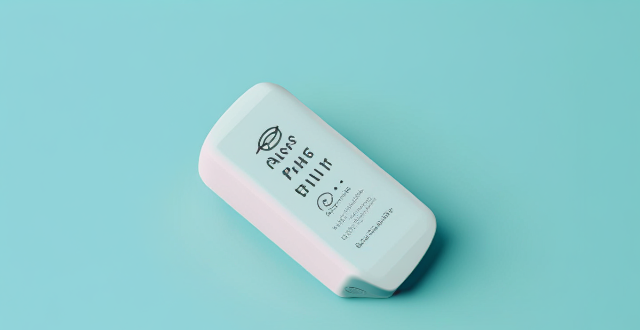
Are there any third-party apps that can help manage battery usage on an iPhone ?
There are several third-party apps available on the App Store that can help manage battery usage on an iPhone. These apps provide features such as monitoring battery usage, optimizing performance, and extending battery life. Popular options include Battery Life - Battery Charge Monitor, Battery Doctor - Battery Optimizer & Battery Saver, and BatteryCare - Battery Manager & Battery Saver. However, it's important to note that Apple's built-in Battery Health feature in iOS also provides valuable information about your battery's health and performance.
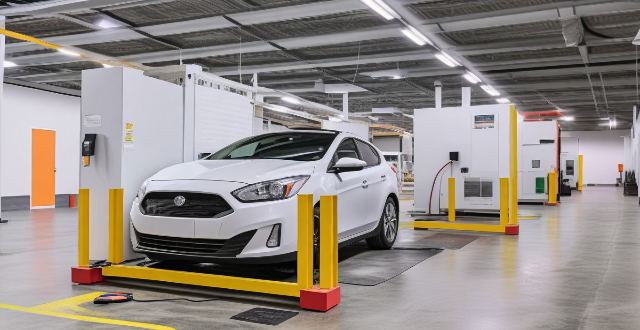
How does an electric car work ?
Electric cars, or EVs, are powered by electricity stored in a battery pack, which is used to power an electric motor that turns the wheels. The process includes starting the car with power from the battery to the controller, which then sends electricity to the motor for acceleration. Braking involves regenerative braking that captures energy to recharge the battery. Charging the battery requires plugging into an external power source managed by an onboard charger. Electric cars boast higher energy efficiency, lower operating costs, reduced environmental impact, quieter operation, and simpler maintenance compared to traditional gasoline vehicles.
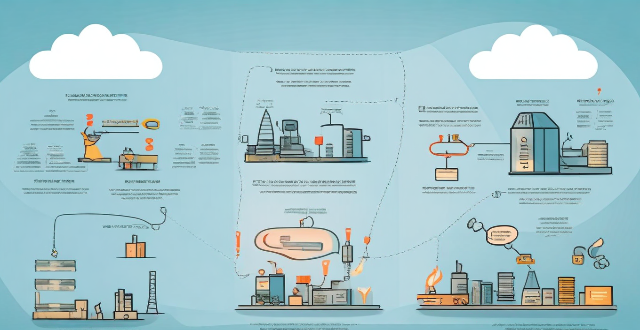
Does using a fast charger damage the battery life of my iPhone ?
The article discusses whether using a fast charger damages the battery life of iPhones. It explains how fast charging technology works, its impact on battery health, and the benefits it offers. The article also provides best practices for fast charging to minimize any potential negative effects on the battery life of iPhones.